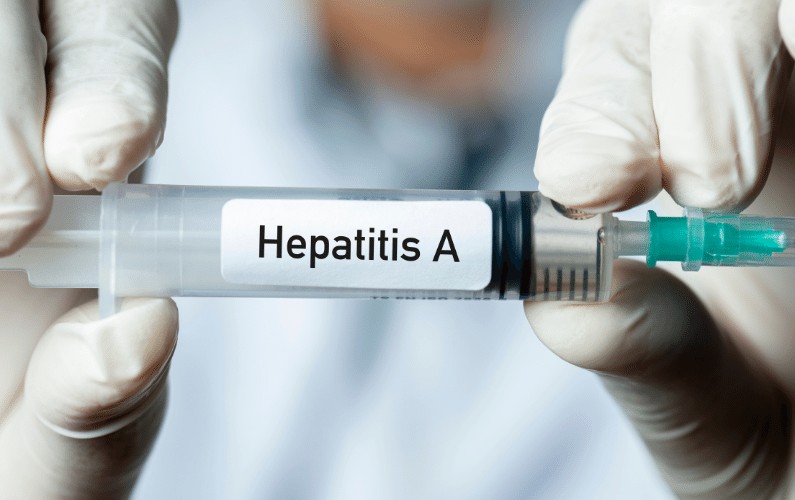What is Hepatitis A and How Can You Prevent It?

Learn about what causes Hepatitis A and discover the best prevention tips and treatment options for you.
Hepatitis A is a liver disease that can keep you sick for weeks. It can occur through close contact with an infected person or by eating food or drinking water contaminated with the virus. Thankfully, it’s easy to prevent.
This article will talk about what hepatitis A is, how it spreads, and how to protect yourself against its complications.
Keep reading to learn more!
What is Hepatitis A?
Hepatitis A affects the liver and is caused by the hepatitis A virus (HAV). It is passed directly from person to person through the fecal-oral route. Additionally, it can be transmitted indirectly through the contamination of food or water, certain sexual contact, close contact with someone who is ill, and the use of illicit substances with others.
Most people who get hepatitis A feel sick for several weeks, but they usually recover fully and quickly.
Hepatitis A Vaccine
Hepatitis A is a vaccine-preventable disease, but some people do not realize they have been exposed or develop symptoms until it is too late for vaccination to help.
In Canada, most people do not need to be vaccinated unless they are travelling or at risk of getting it. Therefore, if you plan on travelling to a country or region where Hepatitis A is common, consulting with your doctor about whether or not you should get vaccinated could save you a lot of headaches in the future.
If you have been exposed to an infected person, getting vaccinated may prevent symptoms from developing. Likewise, if you have been in close contact with a potentially contaminated object (such as a toothbrush), then call your doctor right away. The sooner you get vaccinated, the less chance there will be any complications.
Those who are at high risk of getting Hepatitis A may be eligible to receive the vaccine for free.
Hepatitis A Symptoms
In some cases, people with hepatitis A do not experience any symptoms at all. This is especially true for young children.
However, this is not the case for everyone. Hepatitis A can cause the following symptoms:
- fever
- loss of appetite
- stomach cramps
- jaundice (yellowing of the skin and eyes)
- dark urine
- fatigue
Symptoms commonly begin two to seven weeks after infection. The illness typically improves without treatment during this time, but sometimes you may need extra medical attention to prevent complications.
For example, hepatitis A can cause serious problems for pregnant women, especially if they aren’t aware of it. For this reason, pregnant women should take extra precautions to prevent the disease.

How to Prevent Hepatitis A
Hepatitis A prevention starts with awareness and education. Here are 3 steps to keep in mind:
- To begin with, know how to prevent the illness in the first place.
- Next, recognize whether you are at risk of carrying the disease.
- Last, follow the recommended medical treatment if you do contract the disease.
The best prevention for hepatitis A in Canada is to practice good hygiene. Always wash your hands before making or eating food, after going to the washroom, and after changing diapers.
Taking Extra Precautions While Travelling
It’s essential to take precautions when travelling. Always check available documentation that may indicate you’re visiting a country with a high risk of contracting the disease. Likewise, if the risk is high, vaccination may be a smart choice.
While travelling, be sure to keep proper food safety practices in mind. Although vaccines are most effective, you can take basic prevention measures to reduce the risk of contracting the disease. These include:
- Not eating raw or undercooked meat
- Only drinking water from a safe supply and avoiding ice cubes at restaurants
- Ensuring that you are only eating freshly cooked food
- Avoiding raw fruit or vegetables that you cannot peel

Final Thoughts
In conclusion, contaminated food and water sources can pass hepatitis A from person to person. Your risk may increase while travelling, so consult with your doctor before planning your next trip.
Although infection by the hepatitis A virus is generally easy to avoid in Canada, it is important to speak with your doctor if you notice any symptoms. Doing so can help reduce the chances of any further complications.
Finally, remember to keep all of these prevention tips in mind and contact one of our helpful pharmacists if you have any more questions.
References:
https://www.canada.ca/en/public-health/services/food-poisoning/hepatitis-a.html


